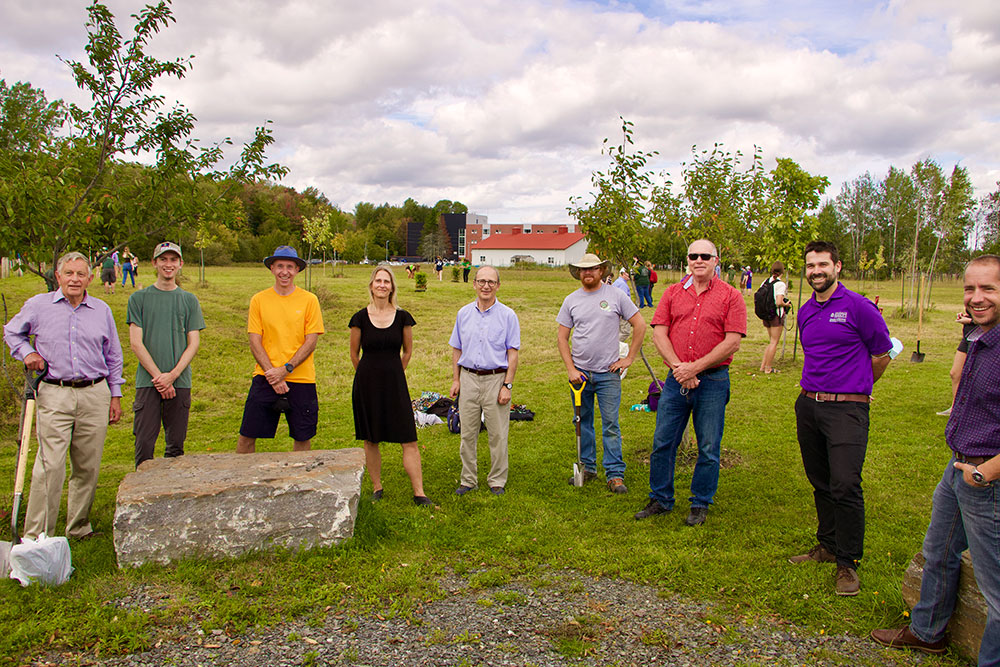Coinciding with National Forest Week (September 19-25), Bishop’s University will initiate the first phase of its tree planting project with the planting of 10,500 trees throughout the campus as part of the University’s 2020-24 Sustainable Development Plan.
Under the supervision of newly appointed Sustainable Development Advisor, a team of student volunteers from the University’s Environmental Club, and the Sustainable Agriculture and Food Systems program have begun the process of digging the soil to plant some 500 trees today near the Peter Curry Marsh, one of nine plantation zones identified on the campus.
Bishop’s University Principal and Vice-Chancellor Michael Goldbloom and Dr. Hugh Scott, Chair of the Tree Care and Biodiversity Working Committee, addressed the objectives of the project and provided historical context for what will be the largest tree planting at Bishop’s, the cost of which is shared by Tree Canada and the Bishop’s University Foundation.
Tree Canada is providing 60% ($31,500) of the project budget and Bishop’s University Foundation the remaining 40% ($21,000).
Principal Goldbloom stated: “Environmental sustainability is a key objective of the University’s Strategic Framework and of our Campus Master Plan. The 10,500 trees that will be planted will help us ensure that our campus will remain a home for wildlife and a haven for recreation while contributing to the sustainability of our planet.”
In partnership with Tree Canada, Bishop’s University plans to reforest previously lush sections of the campus by the end of Fall 2021 as part of its commitment to attain carbon neutrality by 2030.
Tree consultant Vincent Lemonde of Le monde des arbres has worked closely with the Tree Care and Biodiversity Working Committee to identify the plantation areas as well the species of trees for the project. Six native species have been selected in keeping with the University’s sustainable development goals: yellow birch (Betula alleghaniensis), bur oak (Quercus macrocarpa), white pine (Picea glauca), red maple (Acer rubrum), tamarack (Larix laricina), and balsam fir (Abies balsamea).
The tree planting program is a manifestation of Bishop’s commitment to operate in an ecologically and socially responsible manner by becoming carbon neutral by 2030 as stated in the University’s Sustainable Development Policy.
Bishop’s University is situated on a unique, 550-acre campus which features many beautiful natural habitats. The University is committed to ensuring the sustainability of the traditional Abenaki land and ecosystems under its stewardship, which can be strained by natural causes such as river flooding, and nearby human activity such as agriculture, transport and other uses.
The tree planting project will benefit both the campus community and the local community, contributing to the sustainability of our ecosystem through carbon sequestration to help reduce the impact of greenhouse gas emissions; water retention and absorption to help mitigate recurring flooding risks on the site; the restoration of fragmented forest cover to allow wildlife to circulate more safely; and the rehabilitation of forest habitat previously lost to human activity.














